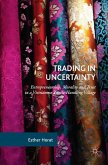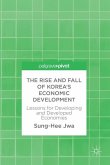This book illustrates how the treatment of complexity in analytical frameworks shapes economic studies. It explores the ways economists make sense of our economic environment and where their differences in interpretations of economic issues and policy proposals are rooted. Schwardt examines developments in economies and the role of the public sector over the last few centuries. Taking a theoretical approach and addressing different analytical frameworks, a basic distinction is introduced between top-down approaches, where assumptions about the economic environment are formulated at the outset; and bottom-up approaches, where an economic environment emerges from the interactions of the individual agents.
By recognising the validity of alternate perspectives on economic issues, Schwardt proposes an improved foundation for economics research and policy.
By recognising the validity of alternate perspectives on economic issues, Schwardt proposes an improved foundation for economics research and policy.








